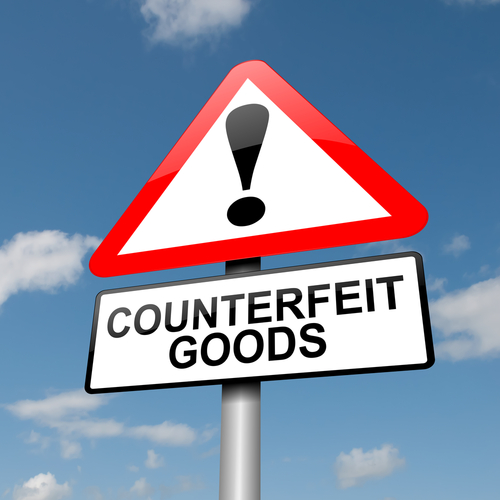Tanzania: Counterfeits Kill Businesses Globally
 Counterfeit parts frequently create the potential for product malfunction, leading to personal injury and even death — a situation that has created unnecessary danger for military and everyday consumers, plus immense new levels of liability and risk for manufacturers in a wide range of industries.
Counterfeit parts frequently create the potential for product malfunction, leading to personal injury and even death — a situation that has created unnecessary danger for military and everyday consumers, plus immense new levels of liability and risk for manufacturers in a wide range of industries.
The proliferation of counterfeit electronic parts into the manufacturing supply chain costs global government and contractors billions each year, but the problem is not just limited to those who supply government agencies.
Recent reports show consumer and industrial businesses are losing approximately 250 billion US Dollars each year because of counterfeit components.
One report notes the automotive industry alone lost 3 billion US Dollars in sales, while another shows the semiconductor industry takes a 75 billion US Dollars annual hit. But there are a number of proactive steps companies may take to protect themselves from the escalating dangers posed by counterfeit electronic parts.
One company that is hot on the heels of counterfeiters is Hewlett Packard and in the past five years, it has conducted around 1,600 investigations across the Europe, Middle East and Africa (EMEA) region, resulting in about 1,300 enforcement actions and the confiscation of 11 million units of counterfeit products and components.
Reports show that as the global trade in counterfeit goods is growing, Africa is increasingly being targeted as a market for counterfeit merchandise. A new trend has emerged that highlights how Africa is being used as a transit route for fake goods, which poses an indirect threat to European and American markets.
Tanzania, like most developing countries, is facing her fair share of dealing with counterfeit goods, and with every effort manufacturers insert in making sure that their products cannot be counterfeited, the criminals devise ways of getting around them.
The current Tanzanian law of Merchandise Marks Act has not defined sub-standards and counterfeits, and Tanzania lacks specific and comprehensive laws to address counterfeits.
Some of the challenges hindering the fight against fake products in the country can be attributed to corruption, lack of public awareness, insufficient human resources, lack of coordination and capacity building for stakeholders like the police and customs officers.
Invariably, the impact of counterfeit and substandard goods hurts the economy occasioning dwindling government revenues. The government, for example, loses between 540 and 900 billion shillings per year due to tax evasions that are related to counterfeit and substandard goods.
Hewlett Packard East Africa Limited Supplies Channel Manager for West, East and Southern Africa, Robert Ngugi said that only six per cent of corporate customers who purchased counterfeit goods did so intentionally.
“The latest labels provide a unique code which you can validate using a smart phone application, and this can be done by capturing the Quick Response (QR) code printed on the label in order to access authentification,” he says.
In order to obtain authentic products on the market, he says, close supervision of such products is the essential factor which enables their verification to see if they really conform to the required standards.
He advised their customers to resist offers to sell empty print cartridge boxes, as they are used to disguise counterfeit print cartridges and trick unknowing victims into buying fakes.
“Please do not sell or give away empty packaging, because next time it could be you who pays the market price for a product you believe to be genuine, only to find that the HP box has been re-used and a counterfeit is inside,” he cautions.
Following a recent upsurge in the activities of illicit vendors, HP has introduced authentication technology allowing customers to tell within seconds if the ink and toner printer cartridges they have purchased are genuine products.
The new HP authentication software allows customers to easily detect counterfeit LaserJet print cartridges by downloading and installing the free software from their website, whereby should it detect anything unusual, they will be warned with messages and advised on the next step to take.
Consequently, HP original inkjet and LaserJet print cartridges feature sophisticated holographic properties as well as a new quick response code which customers can easily validate using a webenabled smartphone or online.
Anti-counterfeit Marketing Programme Manager, Europe Middle East and Africa Printing and Personal Systems Group, Ms Tina Rose says that counterfeiting poses a huge challenge to brands and business in Tanzanian and many other countries around the world.
“Counterfeiters harm manufacturers and customers by consistently undermining business standards and practices. Counterfeiting is bad news for everyone, as it dishonestly generates billions of dollars and threatens the reputation of global brands such as ours.
“It also harms consumers by creating low quality products with unknown chemicals which damages printers and could harm the environment,” she noted. Intercepting several suspicious consignments in 2013, officials in Tanzania, Mozambique and Uganda seized a total of around 13, 000 fake print cartridges and components as well as around 20 hardware fakes.
At around the same time, officials in Kenya and Ethiopia supported by HP successfully staged raid actions against several sources of fake equipment and supplies.
In total, officials seized around 2,500 counterfeit print cartridges and components as well as over 20 fake computer mice, HP thanked all authorities involved for their cooperation, which helps prevent customers in East Africa from being tricked into buying poor quality fakes.
Breaking this down in May 2013, 3,500 fake print cartridges and components were seized in Tanzania; in June 2003, 3,500 toners were nabbed in Mozambique and 4,000 products, fake hardware in Mauritius.
Since November 2008 alone, HP trained over 5,300 police and customs authority representatives, more than 13,200 HP business partners and over 1,500 corporate customers on the subject of anti counterfeiting.
A survey that was conducted by HP in June last year involving 800 respondents found that only 6 per cent of corporate customers who purchased counterfeits did so intentionally while a whopping 94 per cent purchase the products knowingly, a situation that was worrying.
It found that 78 per cent consider HP to be the most active manufacturer of printing suppliers in the fight against counterfeiting and 61 per cent of IT providers regard HP as an important, trusted source of information.
Tanzania’s Development Vision 2025 aspires to create a strong, diversified, resilient and competitive economy. In this regard, such an economy should be able to effectively cope with the challenges of development, including confidently adapting to the challenging market and technological conditions in the regional and global economy.
(Source: AllAfrica)





Leave a Comment
Want to join the discussion?Feel free to contribute!